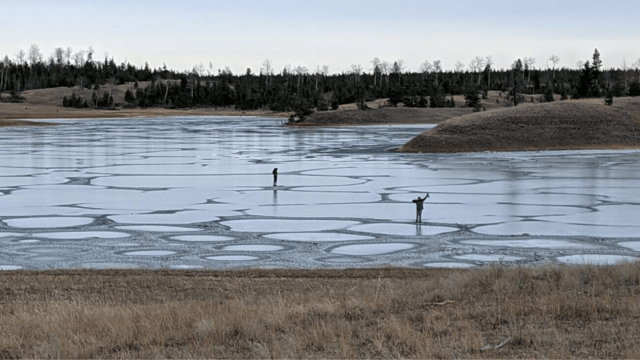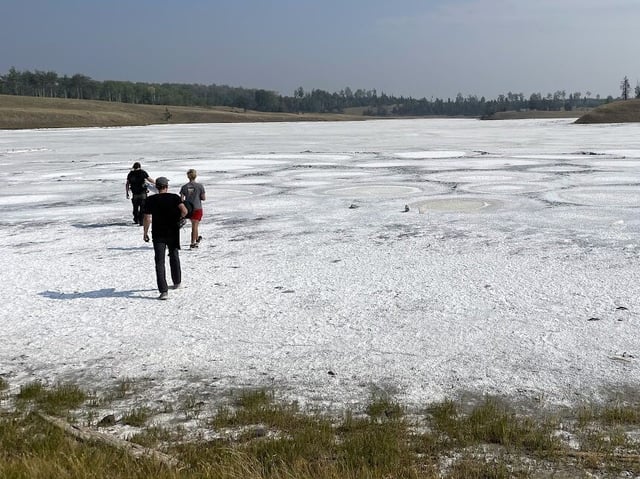Overview
- Scientists from the University of Washington have discovered a shallow 'soda lake' in western Canada that could provide answers to how life on Earth began.
- The lake, known as Last Chance Lake, has high levels of dissolved carbonates, sodium, and phosphates, which are believed to be key ingredients for the emergence of life.
- The high concentration of phosphates in the lake could solve the 'phosphate problem', a long-standing issue in theories of the emergence of life, as these molecules are needed in high concentrations to form key biomolecules.
- Last Chance Lake's unique conditions, including a dry, windy climate that keeps water levels low and dissolved compounds concentrated, make it an ideal site for the study of life's origins.
- The researchers believe that similar environments could have existed on early Earth and possibly other planets, providing a cradle for the origin of life.


